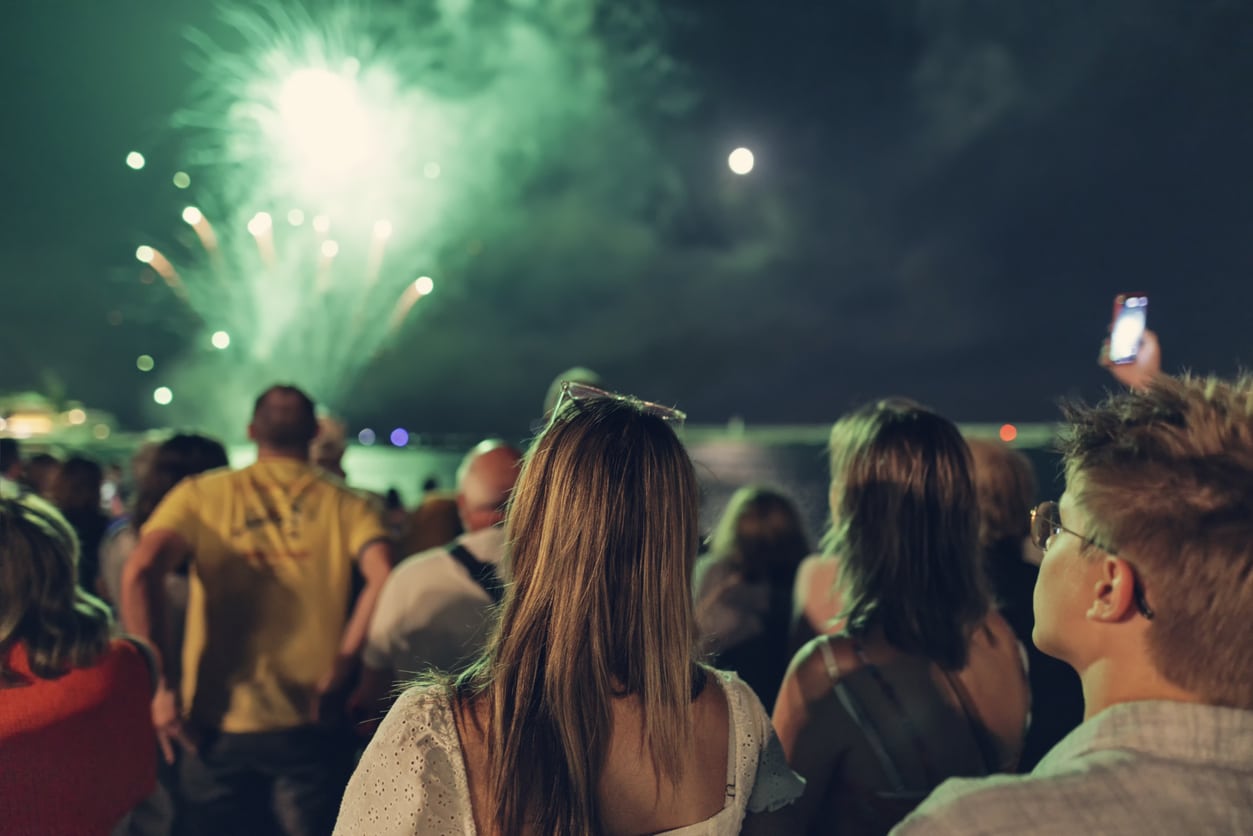As the 4th of July approaches, fireworks and festivities are just around the corner, promising colorful and explosive displays. Whether you’re heading to the Plymouth County Fairgrounds firework show or enjoying sparklers and small poppers in your backyard, protecting your hearing amidst the festivities is crucial.
Fireworks can reach up to 160 decibels, significantly louder than the 85-decibel level at which hearing damage can begin. To ensure you and your loved ones can fully enjoy the holiday without compromising your hearing, take a look at our four tips for 4th of July hearing safety.
1. Wear Hearing Protection

Earplugs and earmuffs protect your hearing by softening the impact with which sound enters your ears, lowering the risk of hearing damage. Make sure to bring hearing protection for the whole family to this year’s 4th of July celebrations.
2. Maintain a Safe Distance
Fireworks are dangerous, and not just for your hearing. Approximately 11,500 firework-related injuries were treated in United States emergency hospitals in 2021. Standing a safe distance from fireworks is not only the right thing to do for your hearing, but your whole physical health as well. Aim to stand at least 500 feet away from the fireworks and farther, if possible, to reduce the risk of injury and hearing damage.
3. Take Breaks
Muffled hearing and tinnitus (ringing in the ear) are signs of temporary or permanent hearing damage. If you notice these signs, step away from the noise or add extra ear protection (earmuffs over your earplugs) to help prevent unnecessary damage.
4. Watch Out for Small Fireworks and Other Noise
Huge, explosive fireworks aren’t the only source of hearing damage. Small fireworks like bottle rockets and snap pops can give off more noise than you realize. In addition to fireworks, loud music and yelling are common for 4th of July party attendees. Do your best to keep noise levels below 85 decibels (roughly as loud as a gas-powered lawn mower) where possible.
Approximately 5.2 million children and 26 million adults live with noise-induced hearing loss. Practicing these four cautionary tips can help prevent noise-induced hearing loss for you and your family this 4th of July. To learn more about caring for your hearing, contact Ear, Nose & Throat Consultants today.